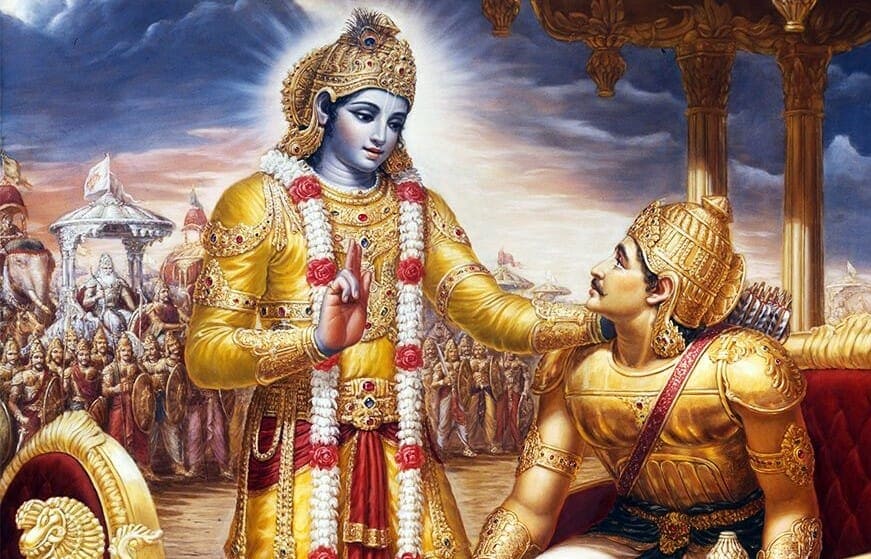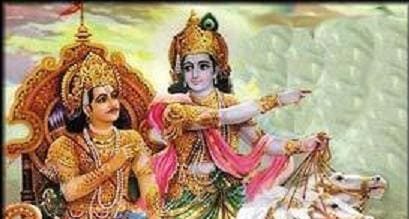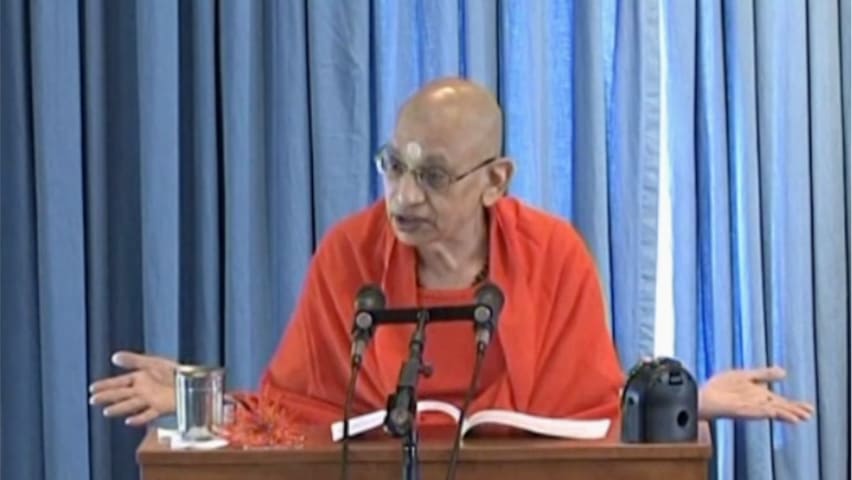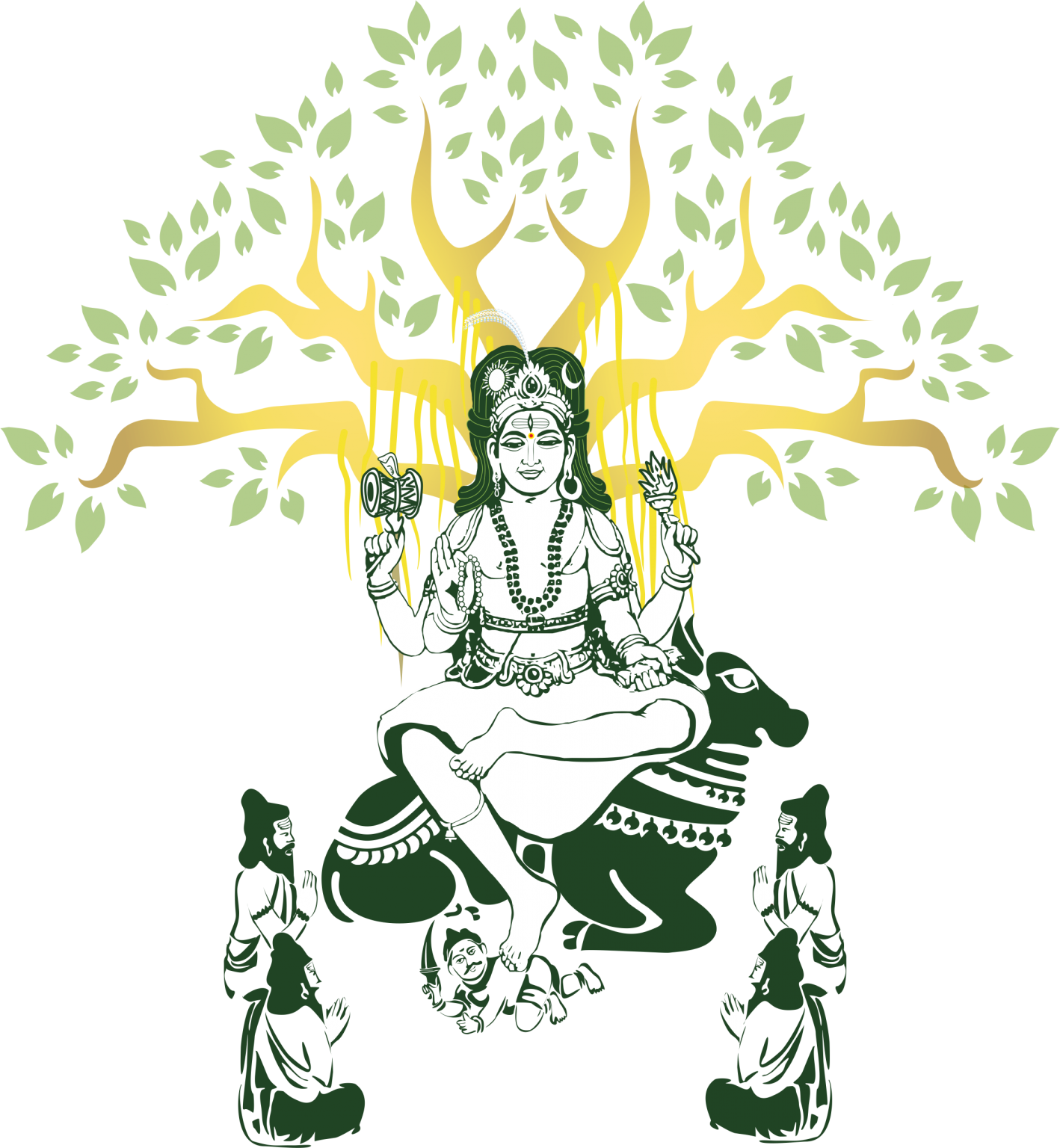THE GLORIES OF BHAGAVAN
The Bhagavadgita is both brahma-vidya and yoga-sastra. As brahma-vidya it can be reduced to one sentence, tat tvam asi—you are that. In this, one has to understand, what this ‘you’ is, and what ‘that’ is. To understand any sentence, you must understand the meaning of each word.
The meaning of the word tat is Isvara, the cause of all. ‘Who’ is this Isvara? Tvam-pada stands for jiva. Who is this jiva? Inquiry into both must be done.
We saw that the first six chapters of the G¢t¡ deal mainly with the meaning of the word ‘tvam–you.’ The first chapter depicted Arjuna’s sorrow, which is the lot of any jiva. Then, discovering in Krishna teacher, he declared himself Krishna’s student and sought refuge in Krishna’s. In the second chapter Lord Krishna teaches him what the atma-svarupa is. The next chapter, karma-yoga is also about the jiva. The fourth chapter teaches that atma is akarta, which is again teaching the nature of the inner self, pratyagatma. Then the fifth chapter deals with the jiva’s renunciation and the sixth chapter is committed to contemplation with reference to pratyagatma, the contemplator.
From the seventh chapter onwards there is a complete change in the presentation of the subject matter. Ì¿vara, the truth of Ì¿vara, the glory of Ì¿vara, is the central topic in these chapters, i.e., the next six chapters.
The tenth chapter of the Gita, called vibhuti-yoga, presents the glories of Isvara. Even though he is all pervasive and is everything, still, the glory of Bhagavan is visible wherever there is a ray of glory.
In India, in ancient times, any good place was dedicated to Bhagavan. A confluence, the coming together of two rivers, is always a wonderful sight. There, you will find a temple. Any mountaintop, from which there is a scenic view, will have a temple. On Ramesvaram, the island is a temple. Kanyakumari is an excellent place where you can see the merging of the three bodies of water, the Arabian Sea, the Bay of Bengal, and the Indian Ocean, each with its own color. It is a great sight. There you find only a temple, no palace or secular monument.




